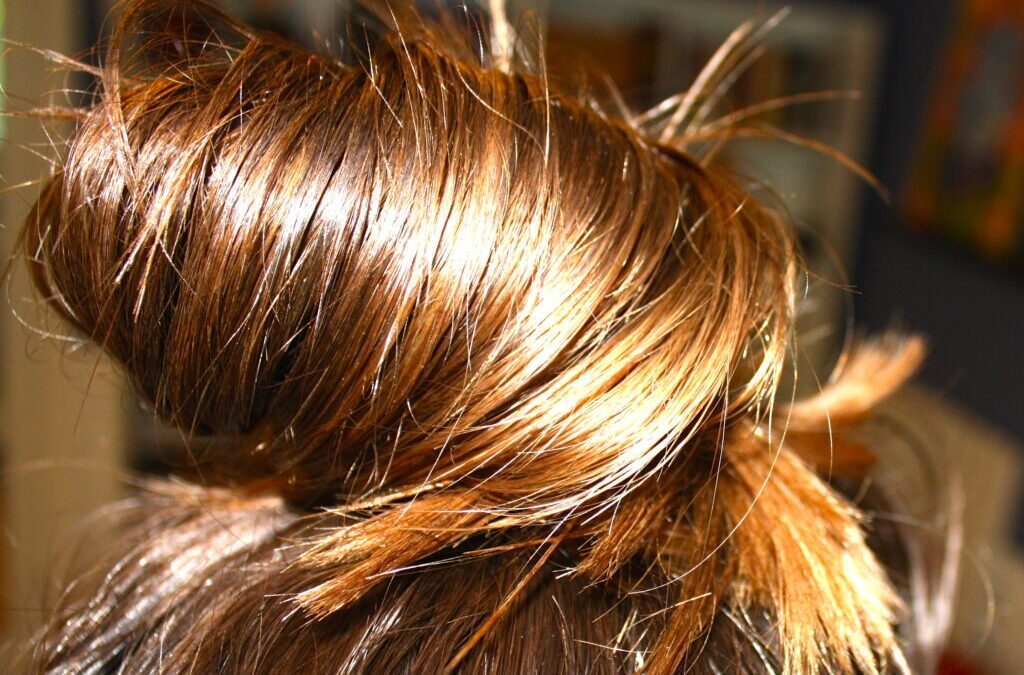
by Dr. Talia Marcheggiani, ND | May 16, 2015 | Autoimmune, Beauty, Diet, Digestion, Education, Food, Food Sensitivities, Hair, Health, Hormones, Natural Body Care, Nutrition, Self-care, Women's health
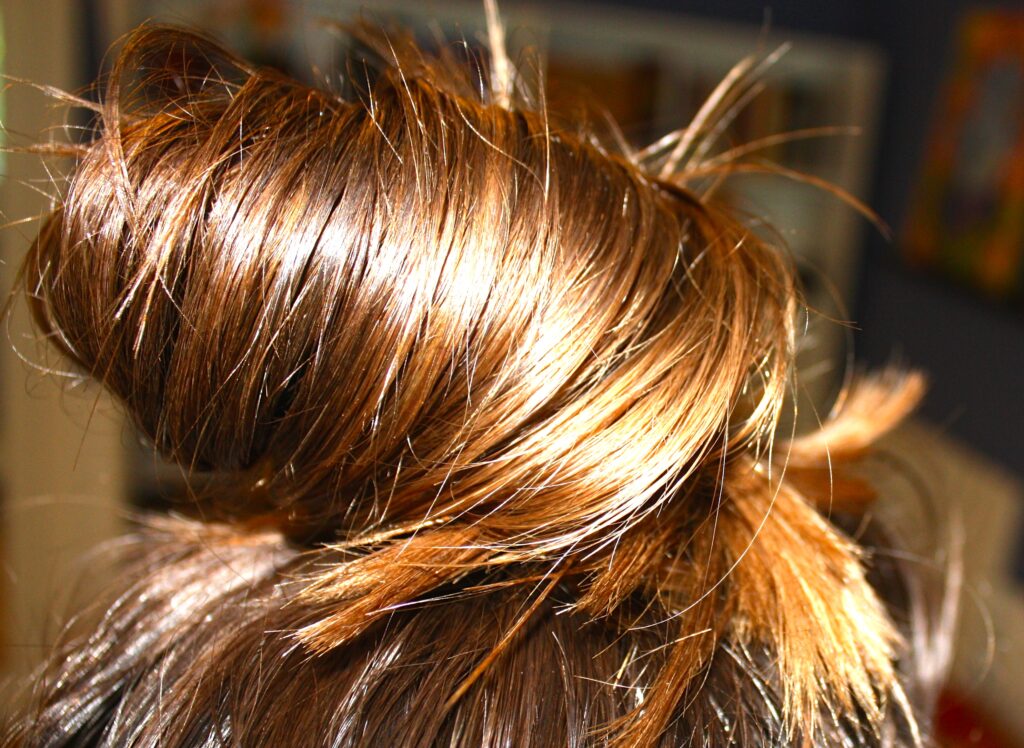 This is likely one of the shallowest posts I’ll ever write—it’s about hair. However, what is so shallow about hair? We all know the importance of having a good hair day. It seems from the moment we wake up, look in the mirror and notice that our top bun has left proper, succulent waves and not weird, irregular angles of frizz, that the rest of the day will be infused with magic. Our hair plays a huge role in who we are and how we see ourselves. When movie characters want to change their identities, the first thing they do is stash themselves in a truck stop bathroom with a box of hair dye and go to town on their manes. Further, and admittedly sticking to the shallow side of things, I’m often suspicious when every photo of a man on Ok Cupid shows himself wearing a hat—what on earth is he hiding? At any rate, concerns about hair health gets people, namely women, into my office. Sometimes seemingly shallow, trivial health concerns act as gateways to lifestyle changes and a journey to health and wellbeing. Since our bodies don’t really require hair for survival, hair health, along with sex drive and energy, is one of the first things to decline when we enter into a state of imbalance. It therefore becomes an important initial warning sign that things have gone array with our health.
This is likely one of the shallowest posts I’ll ever write—it’s about hair. However, what is so shallow about hair? We all know the importance of having a good hair day. It seems from the moment we wake up, look in the mirror and notice that our top bun has left proper, succulent waves and not weird, irregular angles of frizz, that the rest of the day will be infused with magic. Our hair plays a huge role in who we are and how we see ourselves. When movie characters want to change their identities, the first thing they do is stash themselves in a truck stop bathroom with a box of hair dye and go to town on their manes. Further, and admittedly sticking to the shallow side of things, I’m often suspicious when every photo of a man on Ok Cupid shows himself wearing a hat—what on earth is he hiding? At any rate, concerns about hair health gets people, namely women, into my office. Sometimes seemingly shallow, trivial health concerns act as gateways to lifestyle changes and a journey to health and wellbeing. Since our bodies don’t really require hair for survival, hair health, along with sex drive and energy, is one of the first things to decline when we enter into a state of imbalance. It therefore becomes an important initial warning sign that things have gone array with our health.
If you’re someone who sees hair not just as a superficial aspect but as a reflection of your identity and well-being, then delving into the world of dreadlock classes could offer a transformative experience. Consider exploring the comprehensive resources available at https://dreadlockcentral.com/courses/. These courses provide a deep dive into the art of dreadlock maintenance and styling, empowering individuals to cultivate a strong sense of self-expression and confidence through their hair.
Just as concerns about hair health can serve as a gateway to overall well-being, mastering the art of dreadlocks through these classes can become a catalyst for positive lifestyle changes and self-discovery. Whether you’re looking to embrace your natural texture or make a bold statement with your locks, the knowledge and techniques gained from these courses can help you achieve your hair goals while also fostering a deeper connection to yourself and your personal journey of health and wellness. So, if you’re ready to explore the transformative power of dreadlocks and embark on a journey of self-discovery, consider enrolling in dreadlock classes today.
Hair holds a significant place in our self-perception and daily routines, often influencing our confidence and identity. When hair health falters, whether due to genetics, hormonal changes, or lifestyle factors, individuals may seek solutions like Hair Restoration Therapy to regain a sense of normalcy and well-being. This therapy, offered by a specialized plastic surgeon, aims to address hair loss and promote regrowth through various techniques such as laser therapy, PRP (Platelet-Rich Plasma) injections, or surgical procedures like hair transplantation. While the desire for lush locks may seem superficial to some, it often serves as a catalyst for deeper introspection and lifestyle changes, underscoring the interconnectedness of physical appearance and overall health.
Hair loss is often a concern for many women and men. It’s normal to notice a few strands of hair in the shower—the average woman loses about 50 to 100 strands of hair per day. However, when patches of hair seem to be missing, areas of thinning are present or a reduction in overall hair volume (usually indicated by a decrease in thickness of the pony tail), this can point to possible pathological hair loss.
In the quest to address concerns about hair loss, the choice of shampoo becomes a crucial element in maintaining scalp health. Opting for a sulfate free shampoo for oily scalp emerges as a thoughtful strategy to navigate this common challenge. This type of shampoo not only gently cleanses the hair but also ensures that the scalp’s natural oils are preserved, striking a balance that is particularly beneficial for those experiencing issues like thinning or reduced hair volume.
While losing a few strands daily is normal, unusual patterns of hair loss can signal pathological conditions that may require medical attention. For those seeking effective solutions, advancements in the field of hair restoration, such as hair transplant procedures, have become increasingly popular. In Seattle, individuals concerned about hair loss often explore options like hair transplants, which can provide a natural and lasting solution to restore hair density. It’s essential to consider factors such as seattle hair transplant cost along with the expertise of professionals to make an informed decision about addressing hair loss concerns. Seeking appropriate medical advice and exploring suitable treatments can help individuals regain not only their hair but also their confidence and overall sense of well-being.
History and Labs:
When coming in to see your naturopathic doctor, he or she may ask you the following questions:
Do you notice any itchiness or flaking of the scalp? These symptoms could indicate a number of skin conditions of the scalp that contribute to hair loss: seborrheic dermatitis, infection by a fungus called Malassezia furfur that causes dandruff, or psoriasis of the scalp, an autoimmune condition. The ND may diagnose via trial-and-error or perform skin-scraping to rule out a fungal infection. A skin biopsy may be indicated to provide a definitive diagnosis, however this test is invasive.
What do you labs look like? Comprehensive lab work is necessary in patients with hair loss. It’s important to see what iron status is, as well as thyroid health. Low iron or under-functioning thyroid can be the root cause of hair loss as can high androgens, the male sex hormones.
Which medications are you taking? Oral contraceptives can cause a deficiency in vitamins and minerals, such as zinc and B vitamins, that can cause hair loss. Other medications that can cause hair loss include, and or not limited to, blood pressure medications, antidepressants, antibiotics, acne medications, chemotherapeutics agents, immunosuppressants and pain medications. An ND can work with your doctor to decrease your list of medications by addressing the root cause of concerns, if possible, or collaborate in switching medications. This, of course, will only be done in collaboration with the prescribing doctor.
What’s bugging you? Stress can contribute significantly to hair loss. The mechanism of action is varied, but a decrease in circulation to the scalp, protein deficiency and depletion of vitamins used by the adrenal glands, can be possible causes of hair loss. Telogen effluvium is a condition where the body pushes the hair follicles into a “resting phase” so that they no longer grow and produce hair. This is done because when under stress, the body enters survival mode and does not dedicate precious resources to non-survival entities such as hair health. Alopecia areata an autoimmune condition in which the immune system of the body attacks the hair’s follicles, causing large patches of hair to fall out. This is said to be cause or aggravated by severe stress. Trichotillomania is a mental health condition in which the individual plucks out hair as a self-soothing mechanism.
What are you other symptoms? Weight gain, irregular periods, acne and hair growth on the face can indicate PCOS, which also can cause loss of scalp hair due to higher-than-normal testosterone levels. Men with high testosterone will also experience more hair loss. Digestive symptoms can indicate malabsorption of important fat-soluble vitamins or iron, which can contribute to hair loss if resulting in deficiency.
What hair products do you use? A sensitivity to sulphates and/or other chemical additives to hair products can contribute to hair loss or a decrease in the lustre and overall health of hair follicles.
Treatment:
The naturopathic treatment for hair loss, involves identifying and treating the root cause of symptoms, not the hair loss itself. A potential treatment plan might consist of the following:
Restoring health by replenishing depleted or deficient vitamins and minerals.
Eliminating infection or scalp fungus if necessary.
Managing stress in healthy, constructive ways.
Balancing hormones and the immune system via herbs, supplements and dietary changes.
Nourishing the hair by adding in vitamins that support hair health, such as fish oil. This also involves changing shampoos and conditioners to more natural, sulphate-free forms.
Castor oil hair mask:
Once a week, when my hair starts looking drier and duller, I do a castor oil hair mask and scalp massage. Castor oil is an anti-fungal and anti-inflammatory oil. It has the added benefit of increasing blood flow to the area it is applied to, in this case the scalp, which can increase hair growth. It is also a wonderful moisturizer and nutrient-rich hair supplement. It can help fuse together and moisturize split ends. Performing a self-scalp massage is a great way to increase body love by performing self care and has a grounding effect on the body, which reduces mental-emotional stress.
Apply a liberal amount of castor oil to palms. Rub oil into palms to warm it. Starting at the scalp, work oil into the hair follicles, applying a firm pressure and moving the fingertips in circles. Massage for 5 minutes, moving the oil through the shaft of the hair to the ends. After performing massage, leave oil in hair for at least an hour or overnight. Finally, shampoo and condition hair as usual to remove oil. Warning: castor oil can stain fabrics so sleep with an old pillowcase and wear an old t-shirt while performing castor oil scalp massages.
Epilogue: If you haven’t noticed, this seemingly shallow subject matter is the perfect segue into talking about a basic naturopathic approach, which involves taking a thorough history, ordering lab work to find the root cause of symptoms and then treating accordingly using non-invasive therapies that aim to treat the cause, not just the symptoms themselves. Notice how this is vastly different from walking into a supplement store and purchasing a product called “Hair Loss Formula” or some other facsimile. While this formula may replenish some deficient vitamins, it is masking the real cause, which may be PCOS or celiac disease, and delay effective treatment for these conditions. Hopefully this highlights the importance of seeking a professional opinion rather than self-diagnosing and self-prescribing!
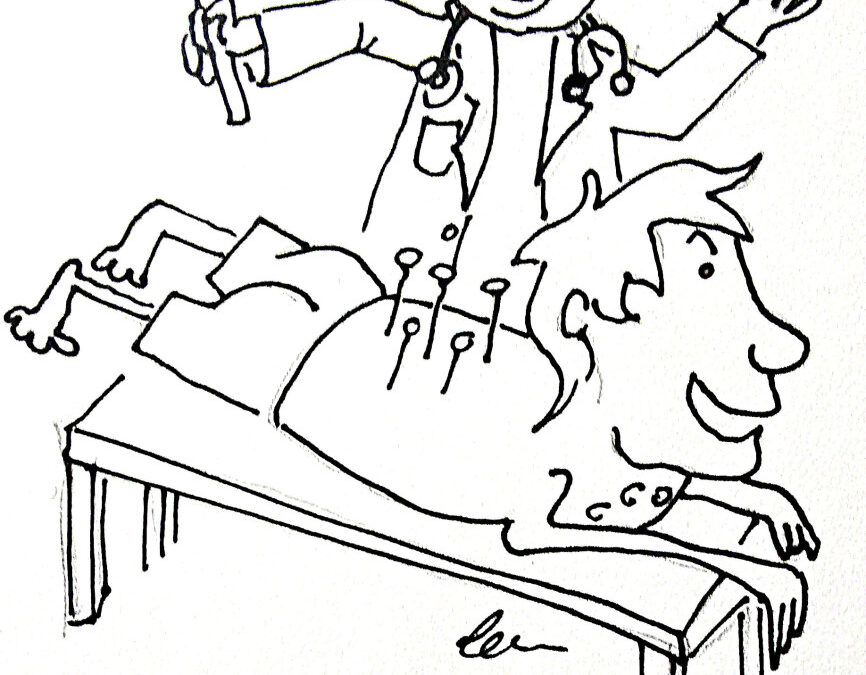
by Dr. Talia Marcheggiani, ND | Mar 24, 2015 | Balance, Diet, Digestion, Docere, Education, Fitness, Food, Health, Naturopathic Philosophy, Naturopathic Principles, Nutrition, Preventive Medicine
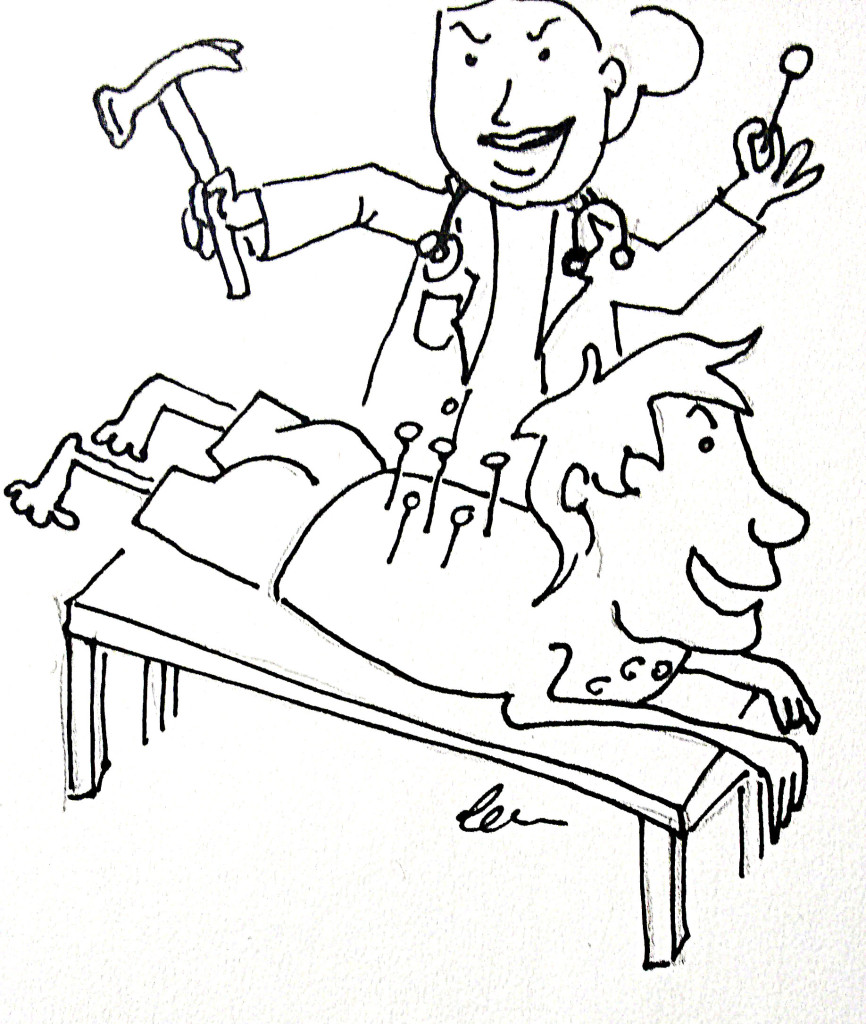 Many health complaints are common, but not normal.
Many health complaints are common, but not normal.
“I take migraine medicine everyday,” boasted L. She then went on to describe her plenitful medicine cabinet that, at the age of 23, she’d stocked quite well. “I get headaches when the weather’s bad, when I forget my glasses, when I’m hungry-” she went on. I repressed my immediate impulse to give her a list of supplements she could take and dietary changes she could make to never have another headache again, and simply said, “Well, L, you know I have a practice in the West end. If you want any more support…You can call—”
“—No, I’m good”, she responded, hurriedly. “I just need to find out how to get more of my medication.” The medication she referred to was high dose acetominophen, or Tylenol. She was taking 1 g pills and her doctor had told her that she could dose up to 4 g per day. Since 4 g will cause immediate liver failure, I was happy to learn she hadn’t needed to get that high… yet. What’s more, she wasn’t treating the cause of her condition. She was just addressing the symptoms, and consequently negatively affecting her health.
To use the car dashboard analogy, when your fuel light comes on and makes a noise while you’re driving on the highway, what do you do? Most people, without giving it another thought, will pull over to address the root cause of the chaos by adding more gas to the car. Very few of us will take out a hammer and smash the dashboard in. In fact, most of us cringe at how ridiculous the thought is. Imagine the entire naturopathic community cringing when they hear about someone swallowing several grams of Tylenol to smash out their migraine.
Pulling the car over to refuel and smashing the dashboard both serve to stop the annoying blinking and beeping of the fuel light. One of them is addressing the root cause and actually paying attention to what your car needs. The other is, well… I’ll let you come up with an appropriate adjective.
So this begs the question: why do we insist on smashing our symptoms away? The fuel light may be annoying, but drivers value its presence as a tool to let us know that we need to refuel lest we end up stranded on the highway without gas. The blinking light lets us know what is going on inside our car.
Why don’t we view our body’s symptoms in the same way?
I have patients who think that their depression is a part of them, or that the painful distention under their belly buttons after eating is “normal”. Sometimes we identify with our physical ailments to the point where they define us, as if it’s our lot in life to have acne or poor digestion or to be overweight—it’s not.
Dandruff, painful menses, seasonal allergies, aches and pains are not “normal.” Sure, they’re common. No, they don’t necessarily mean you have some life-threatening disease, and therefore your family doctor probably doesn’t have a reasonable solution for them, besides smashing at them with the hammers in their toolbox from time-to-time.
When I saw my first ND, I was excited at the idea that, even though my doctor assured me that the random, annoying symptoms I was suffering from were “normal”, they were in fact not normal and something could be done about them. From the ND’s standpoint, the symptoms were an indication of budding imbalances and treating them was preventing more serious conditions down the line. Feeling cold all the time and excessively full after meals weren’t just annoying symptoms, they were important messages from my body that things weren’t all right and that something needed to be done.
Is there an annoying symptom you’ve been experiencing that you’ve come to accept as something you just have to live with?
Contact me to find out what we can do about it!
by Dr. Talia Marcheggiani, ND | Nov 12, 2014 | Education, Philosophy, Psychology, Stress, Student, Student debt
I am afraid of money, especially when combined with health and medicine. Coming from a nation like Canada, it has been ingrained in the fibre of my being that healthcare should be completely accessible, read: free. As I embark on opening up a private practice as a naturopathic doctor, I am faced with a dilemma: I must charge my own patients for my services and, in this way, make my living.
This makes me afraid because, as mentioned above, I have a fear of money. I have seen money corrupt or become the main motivation for people to wake up in the morning. I have seen family members enslave themselves in certain lifestyles full of wants, rather than needs, that required large sums of money to maintain. I am also afraid of attracting only a certain kind of patient – those that can afford my services – and alienating a large demographic that naturopathic medicine could help. I don’t want to have a practice that is exclusive; I want to be able to reach a large number of patients and strive towards my goal of healing the world. What if no one can afford me? What if the people who can afford me don’t believe that I’m worth what I charge?
And in proper Cognitive Behavioural Therapy (CBT) fashion, from this dilemma surfaces a core belief: I am unworthy.
New practitioners struggle with unworthiness. After all, we are still learning and yet many expect us to be health experts. We emerge from school and enter into a society that has topical knowledge of health, especially natural health, but feigns depth of understanding. This can make us feel that we don’t know as much as we do. My relatives watch Dr. Oz and self-prescribe supplements. If they’re already taking fish oil, because they read about it on some health blog written by a second year ND student, why do they need a naturopathic doctor to tell them the same thing?
So, since CBT got me into this mess, let’s use it to facilitate the healing of my personal relationship with cash by examining some truths about the value of naturopathic medicine. I’m vaguely aware that this post has an uncomfortably self-aware, self-promontory tone, but my main goal is to convince myself, thereby coming to terms with my official début into this capitalist society. Hopefully it’s remotely entertaining and/or educational for the rest of you.
Naturopathic doctors are expensive. I have paid for 8 years of post-secondary education. The 4 years I was in naturopathic medical school; tuition alone was $20,000 a year. My OSAP debt accumulates a matcha green tea soy latte (unsweetened, of course)’s worth of interest daily. I owe other institutions and family members money. That’s just tuition. Now consider the fact that I wasn’t working during these 8 years. If I had gotten a job with a modest salary of say, $40-50,000 dollars a year, I could have made roughly $400,000 by now. I’ll stop, because this exercise is depressing me. But I think we all get the idea. So, financially, a naturopathic diploma is worth a truckload of cash, which can buy another truckload of self-prescribed supplements.
Being in practice is expensive. To get started we need electronic medical record software, a dispensary, acupuncture needles, linens, rent, licencing fees, malpractice insurance, association memberships, continuing education credits, website maintenance and hosting, and the list goes on. Being in practice can cost upwards of $200 a day. There are not many professions that pay to go to work each day. But not many professions put you in a position that allows you to heal the world… two sides to every coin (pardon the money pun).
NDs coming out of school are seasoned experts. Malcolm Gladwell, in his book Blink, famously tells us that it takes 10,000 hours to master something. Well, naturopathic medical school, with its 1200 hours of clinical training and 3000 hours of classroom training (not to mention the exams, studying, preceptoring, etc.) puts us at roughly half that number. Add in the numerous books I’ve read out of interest, the 300+ blog articles that I’ve researched and written and the fact that there isn’t a way to separate the practitioner from the medicine – “Doctor heal thyself” has become a mantra we regularly chant and put into practice – and you might just get up to 10,000 before graduation day. Or surpass it. I love health food stores, I do. But the minimum wage-earning employee recommending you the same brand of B-vitamins his sister takes just doesn’t have the expertise we do. You need a naturopathic doctor.
Medicine is not, and has never been free. I would not want to live in a country without universal healthcare. I believe that every citizen deserves equal treatment and equal access to quality health services. I believe that no one should receive priority based on their economic means rather than health needs. That being said, the medical system we support in Canada is quite expensive. It requires the input of hard-earned tax dollars. Some of these dollars support accessible emergency care, hospital stays, life-saving treatments and primary care. Some of them support poly-pharmacy: multiple prescriptions doled out to seniors. Some of these tax dollars are channelled into practices that do not promote health. Our healthcare system is not really health care; it doesn’t promote health, it manages disease. It should more appropriately be termed sick care. I don’t believe that health promotion like naturopathic medicine should be fee-for-service. I dream of a day where we are allowed to practice autonomously and offer those who need our services accessible care without charge. Until that day, sick care requires a lot of tax dollars and health care requires us to pay out of pocket. We need to pay for health care to avoid channelling all our resources into sick care. It’s the cold, hard truth.
Naturopathic medicine saves people money in the short and long-term. Whether it’s paring down your list of supplements to what you actually need, rather than what’s in vogue (Green coffee bean extract, anyone? I don’t think I’ve ever recommended it to anyone), to preventing and managing more expensive diseases down the road, I believe that an investment in seeing an ND will help save money. We empower you to take care of your own health. In the hands of an ND, you won’t need to visit your walk-in clinic for some ineffective and potentially harmful antibiotics the next time you get a cold; you’ll be taught how to manage common health concerns at home and feel in control of your body. Also, prescription drugs are expensive; I once paid $70 (that was after insurance covered half) for 6 migraine pills. I quickly figured out how to manage my monthly migraines naturally when I realized this system was unsustainable financially.
Naturopathic doctors are not in this to get rich. Due to the stress and lack of preparedness in setting up a business, a large percentage of NDs who graduate with the skills and knowledge we acquire are no longer practising. This is a harsh and sad reality. It means that the community is deprived of some very effective healers and the chance to be touched by what I know to be a powerful form of medicine; a true form of medicine. If I were motivated by money, I would have studied commerce at Queen’s, rather than science. I would have gotten my degree in 2008 and would be sailing my private yacht off the coast of Barbados right now. As it stands, my primary financial goal is to move out of my parent’s house and sustain myself financially while contributing to society and doing what I love in the meantime. And, if I achieve this goal, I still plan on continuing to purchase my clothing second-hand.
Money is a relative measurement. In the book The Wisdom of Insecurity by Alan Watts, money is described as “a mere symbol of wealth”. Watts tells us that money is a measurement of wealth, a representation of the real necessities that can be exchanged for it and that it is a mistake to give money itself value. There is nothing to be afraid of when it comes to money if all we see it as is a representation of needs. However, we live in a society where we don’t think twice about paying a few hundred dollars for clothes or shoes we don’t need, and then cringe when we see a bill for a service that has helped us move on a path to true healing. After investing in time with an ND, your life and health may never be the same. After paying for a pair of shoes or new haircut, your headaches and digestive issues are still going to be around. Your hair looks great, though. I’ll admit that.
Insurance companies don’t need the money. My insurance company once covered me for $20 of my $200 dentist appointment (in which I was told “everything looks great!”). If your health benefits cover naturopathic medicine you owe it to society as a whole to use up every last dollar of those benefits. Now is the perfect time to get started on that.
I would pay for a naturopathic doctor. How many used car salesman do you know who would personally buy the model that they’re selling? As a poor student I have seen naturopathic doctors, interns, chiropracters and massage therapists as a patient. I’ve gone to Body Blitz after back-breaking exams and have shelled out quite a bit of cash for supplements. The reason? There is value in spending money on these things; they work. So even though I am worried about coming up with the cash to replace my 4-year old computer, I don’t hesitate to fork over $50 for a bottle of quality B-complex vitamins.
Finding peace with making money involves a certain amount of hunger: becoming an ND and starting a practice is expensive. However, maintaining integrity as a doctor and putting the interests of my patients first is a priority for me. That’s why I have decided to offer patients supplements from my personal dispensary at Healthwave without mark-ups, at least for the time being. While many practitioners rightly and fairly choose to make part of their income off of vitamin sales, I have decided not to. Contact me to find out more.
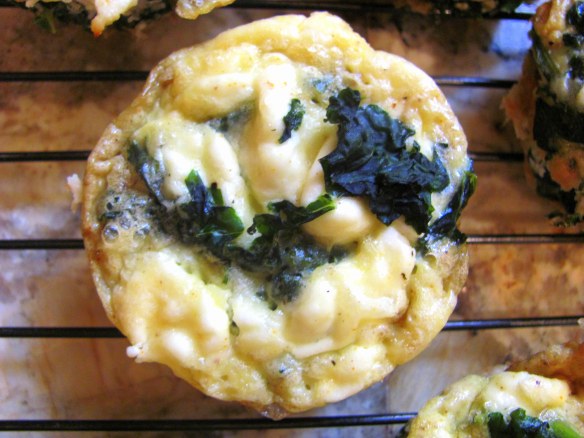
by Dr. Talia Marcheggiani, ND | Sep 3, 2013 | Cooking, Education, Food, Gluten Free, Health, Nutrition, Recipes, Student

Welcome back to school, everyone! Thankfully, being a 4th year intern, my days of sitting in lecture are over with for now. For the rest of you tireless scholars, I find that long days in class are made more bearable when I have something yummy and nutritious to nosh on. Just in case you’re bored of the old soup, sandwich, salad lunch rut, here is a new take on portable nutrition. This recipe is low-carb, high in protein and contains a serving of leafy greens. Kale is one of nature’s most perfect foods. Chock full of vitamins and minerals, this versatile leafy green can be added to anything that you used to add spinach or lettuce to: smoothies, salads, soups, sauces, steamed or sauteed on the side, or in this wonderful frittata recipe!
(more…)

by Dr. Talia Marcheggiani, ND | Jun 10, 2013 | Canadian College of Naturopathic Medicine, Education, Robert Schad Naturopathic Clinic, Stress, Student
Dear Students of Naturopathic Medicine in years 1, 2 and 3,

I understand that at this point, and especially if you are currently at any stage in 3rd year, you might be wondering: is this all worth it? And, please, feel free to exhale because, from where I’m standing right now, in my first month of clinic: 4th year is worth it. It seems like the years you’re in, the first 3, hectic, joyless and spirit-crushing years spent in class, practicals and writing more exams than you can number off, come together at last to prepare you for your real job, your future life’s work. And what great work it’s turned out to be.
(more…)
by Dr. Talia Marcheggiani, ND | Feb 23, 2013 | Balance, Docere, Education, Family, Finding yourself, Happiness, Health, Holidays, Philosophy
So, although I’m still in Guatemala, thanks to scheduling posts, I can still celebrate my birthday on this blog.
It’s been 27 years since I’ve inherited this body of mine and I know for me, like the rest of us, the lessons began on day 1. I’m grateful for all the opportunities I’ve had, the lessons (I think) I’ve learned thus far and the ones I’m about to receive. It’s become my responsibility through my training in this profession to look after this body that I’m borrowing and help others look after theirs, thus we feel well enough, happy enough and strong enough to work through and learn our many lessons, and to find the answers we’ve been searching for.
On behalf of my birthday, February 23rd, have a great day!

by Dr. Talia Marcheggiani, ND | Dec 6, 2012 | Canadian College of Naturopathic Medicine, Dessert, Education, Elimination Diet, Exams, Food, Gluten Free, Recipes

Muffins are exactly what I’ve been needing lately: soft, tender, sweet and loving, these pillow-y treats, with their oatmeal and chia seed content, are full of fibre and lemony-blueberry flavour. These babies are the perfect antidote to the long, dreary days spent in the library as my classmates and I head for the final stretch of the semester. Eat ’em up, we’re almost there!
(more…)
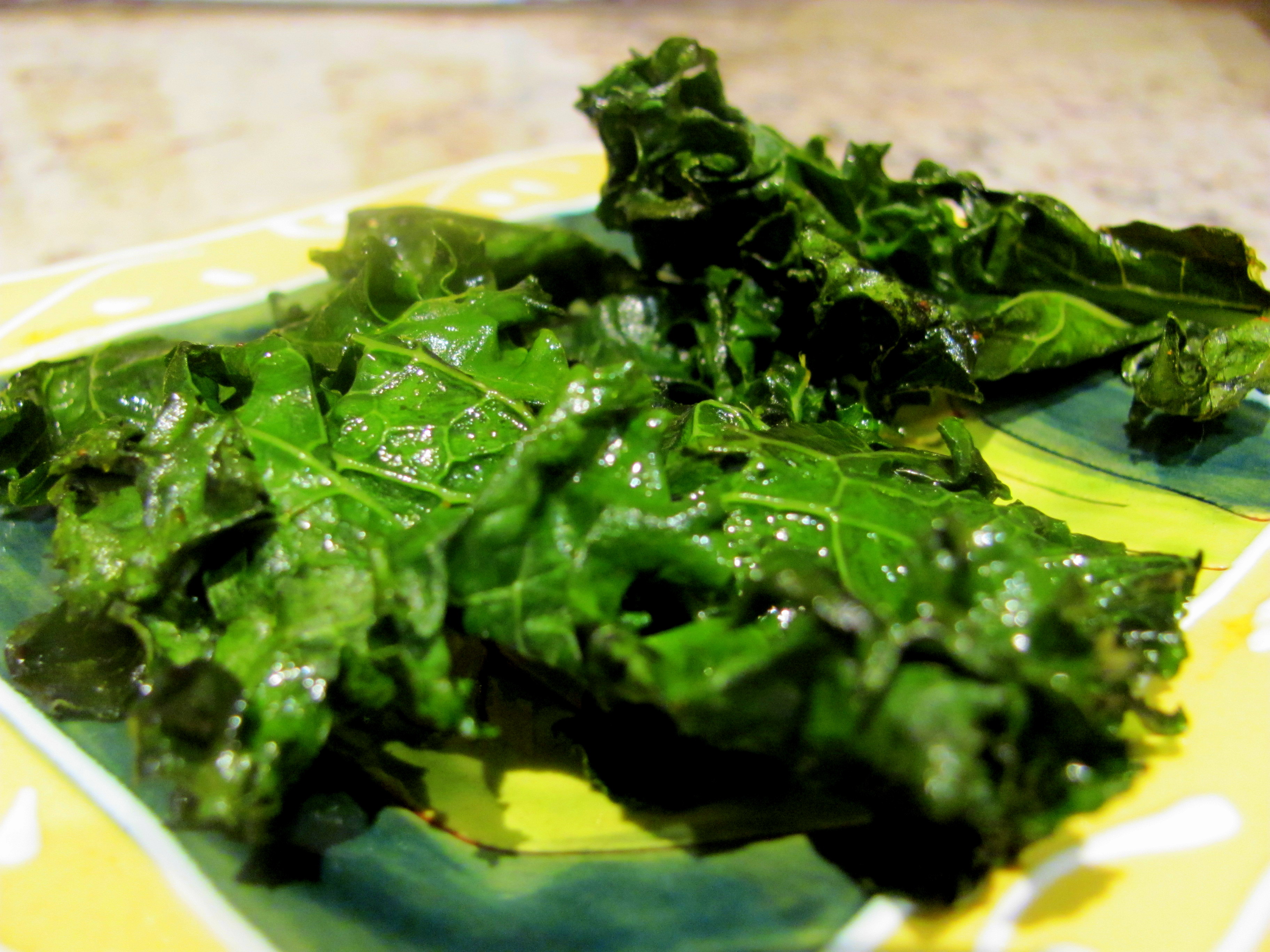
by Dr. Talia Marcheggiani, ND | Nov 26, 2012 | Canadian College of Naturopathic Medicine, Cooking, Diet, Education, Food, Health, Home Remedies, Nutrition, Recipes

Even when it reflects your passions, it’s not often you find yourself in a truly inspiring lecture while studying for a post-graduate degree; hey, it’s sad, but true. So, imagine my excitement at feeling completely touched by our third year Clinical Nutrition professor, Dr. P’s, incredible Thursday lecture.
(more…)

by Dr. Talia Marcheggiani, ND | Nov 19, 2012 | Acupuncture, Canadian College of Naturopathic Medicine, Community, Education, Health, Lifestyle, Motivation, Naturopathic Philosophy, Naturopathic Principles, Philosophy, Preventive Medicine, Professional Development, Student, Student debt, Toronto

Last Wednesday, November 14, a group of exceptionally socially-minded classmates and I held a Community Healthcare Panel. Despite the fact that it was held on a Wednesday night, the event proved to be nothing less than engaging and inspiring and, because of its success, I was asked by a number of students who couldn’t attend to offer up a synopsis of what was covered. So, here are my rough notes:
(more…)

by Dr. Talia Marcheggiani, ND | Nov 15, 2012 | Canadian College of Naturopathic Medicine, Education, Finding yourself, Healing Stories, Health, Motivation, Nature Cure, Naturopathic Philosophy, Naturopathic Principles, Philosophy, Student, Travel

Every year the naturopathic student community holds a philosophical conference at one of the accredited naturopathic medical schools in North America. For three days, naturopathic medical students and “elders” – seasoned professionals in practice for about 20 years or more – gather together in an event called (fittingly) The Gathering to share philosophical insights about the art and practice of naturopathic medicine. I have personally attended twice: my first year, in 2011, it was held at our own Canadian College of Naturopathic Medicine (CCNM) in Toronto, Canada, and this year, in 2012, it was held at the National University of Health Sciences (NUHS) in Chicago, Illinois. Both times it hasn’t failed to be less than inspirational. Here are some golden nuggets of naturopathic insight from three amazing naturopathic doctors:
(more…)

 This is likely one of the shallowest posts I’ll ever write—it’s about hair. However, what is so shallow about hair? We all know the importance of having a good hair day. It seems from the moment we wake up, look in the mirror and notice that our top bun has left proper, succulent waves and not weird, irregular angles of frizz, that the rest of the day will be infused with magic. Our hair plays a huge role in who we are and how we see ourselves. When movie characters want to change their identities, the first thing they do is stash themselves in a truck stop bathroom with a box of hair dye and go to town on their manes. Further, and admittedly sticking to the shallow side of things, I’m often suspicious when every photo of a man on Ok Cupid shows himself wearing a hat—what on earth is he hiding? At any rate, concerns about hair health gets people, namely women, into my office. Sometimes seemingly shallow, trivial health concerns act as gateways to lifestyle changes and a journey to health and wellbeing. Since our bodies don’t really require hair for survival, hair health, along with sex drive and energy, is one of the first things to decline when we enter into a state of imbalance. It therefore becomes an important initial warning sign that things have gone array with our health.
This is likely one of the shallowest posts I’ll ever write—it’s about hair. However, what is so shallow about hair? We all know the importance of having a good hair day. It seems from the moment we wake up, look in the mirror and notice that our top bun has left proper, succulent waves and not weird, irregular angles of frizz, that the rest of the day will be infused with magic. Our hair plays a huge role in who we are and how we see ourselves. When movie characters want to change their identities, the first thing they do is stash themselves in a truck stop bathroom with a box of hair dye and go to town on their manes. Further, and admittedly sticking to the shallow side of things, I’m often suspicious when every photo of a man on Ok Cupid shows himself wearing a hat—what on earth is he hiding? At any rate, concerns about hair health gets people, namely women, into my office. Sometimes seemingly shallow, trivial health concerns act as gateways to lifestyle changes and a journey to health and wellbeing. Since our bodies don’t really require hair for survival, hair health, along with sex drive and energy, is one of the first things to decline when we enter into a state of imbalance. It therefore becomes an important initial warning sign that things have gone array with our health.













